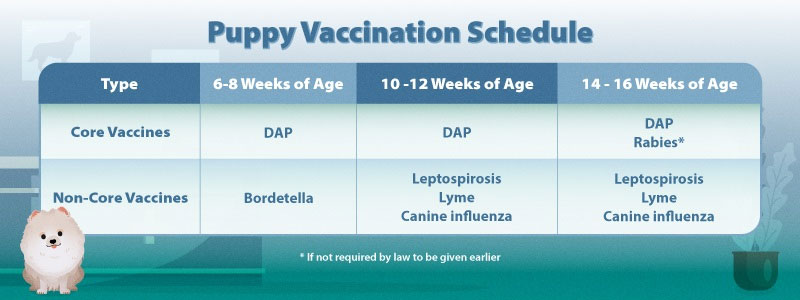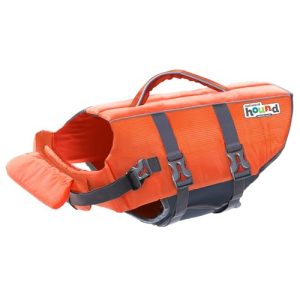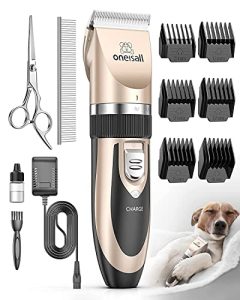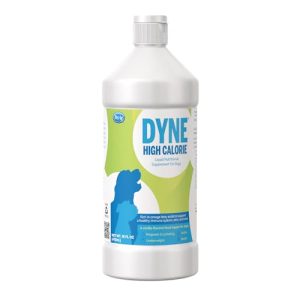If you have a dog, you want to keep them happy and healthy. One important way to do that is by protecting them from common illnesses.
You might have heard about the Bordetella vaccine but aren’t sure how often your dog needs it. Getting this right can save your furry friend from uncomfortable coughing and serious infections. You’ll discover exactly when and why your dog should get the Bordetella vaccine.
Keep reading to learn how to give your dog the best defense against kennel cough and other risks.
Bordetella Vaccine Basics
The Bordetella vaccine is a key part of keeping your dog healthy, especially if they spend time around other dogs. Understanding the basics of this vaccine helps you make informed decisions about your pet’s care. Let’s break down what Bordetella is and why vaccinating your dog matters.
What Is Bordetella?
Bordetella bronchiseptica is a bacteria that causes kennel cough, a contagious respiratory illness in dogs. This infection spreads easily in places where dogs are close together, like dog parks, grooming salons, and boarding facilities.
Kennel cough shows up as a harsh, dry cough and can last for weeks. While many dogs recover quickly, puppies, older dogs, and those with weak immune systems may face serious complications.
Why Vaccinate Your Dog?
Vaccinating your dog against Bordetella helps reduce the risk of kennel cough and lowers the severity if they do get infected. It also protects other dogs your pet might meet, stopping the spread of the bacteria.
Think about how often your dog visits places with other dogs. If your dog joins group training or daycare, this vaccine becomes even more important. Have you noticed how quickly infections can spread in these settings?
Getting the Bordetella vaccine is a simple step to keep your dog comfortable and active. It’s a small effort that can save you from costly vet visits and your dog from unnecessary discomfort.
Vaccination Schedule
Understanding the Bordetella vaccine schedule is crucial for your dog’s health. This vaccine helps prevent kennel cough, a contagious respiratory disease. A proper vaccination schedule ensures your dog stays protected.
Let’s delve into the timing and frequency of these important vaccinations.
Initial Vaccination Timing
Puppies can receive their first Bordetella vaccine at 8 weeks old. The initial vaccine is crucial for building their immune defense. Older dogs, never vaccinated before, should get their first dose promptly.
Consult with your vet to decide the best timing for your dog.
Booster Shots Frequency
After the initial dose, boosters are vital for ongoing protection. Dogs typically need a booster every 6 to 12 months. Some environments, like dog parks, may require more frequent boosters.
Your vet can recommend the best booster schedule based on your dog’s lifestyle.
Factors Influencing Frequency
The frequency of the Bordetella vaccine depends on several factors unique to each dog. Understanding these factors helps keep your dog protected without unnecessary vaccinations. Some dogs may need the vaccine more often, while others less frequently. These differences ensure the vaccine works well and fits each dog’s needs.
Dog’s Lifestyle And Exposure
Dogs that spend time in busy places face higher risks. Places like dog parks, kennels, grooming salons, or training classes increase exposure to Bordetella bacteria. These dogs benefit from more frequent vaccinations, often every six months to a year.
Dogs that stay mostly at home or have little contact with other dogs may need the vaccine less often. Their risk of catching kennel cough is lower, so annual vaccination might be enough.
Age And Health Considerations
Puppies usually get a series of Bordetella shots for strong protection. After the initial series, boosters keep immunity strong. Older dogs may need different timing based on their health.
Dogs with weak immune systems or chronic illnesses may require more frequent vaccination. Their bodies may not hold immunity as long, so vets often recommend boosters more often.
Types Of Bordetella Vaccines
Bordetella vaccines come in different forms to suit various needs. Each type has unique features and ways to protect your dog. Choosing the right one depends on your dog’s health and lifestyle.
Nasal Spray Vaccine
This vaccine is sprayed directly into the dog’s nose. It works quickly by stimulating local immunity. The nasal spray is easy to give and usually well tolerated. It helps protect against kennel cough and other respiratory infections.
Injection Vaccine
The injection vaccine is given under the skin. It creates a strong immune response inside the body. This type may take longer to start working than the nasal spray. Some dogs may need a booster shot to maintain protection.
Oral Vaccine Options
Oral vaccines come as flavored tablets or gels. Dogs often find these easier to accept than injections or sprays. They stimulate the immune system through the mouth and throat. This method is convenient for dogs sensitive to needles.
Vaccine Side Effects
Vaccines protect dogs from many diseases, but they can cause side effects. Most reactions to the Bordetella vaccine are mild and short-lived. Knowing what to expect helps owners care for their pets properly after vaccination.
Common Reactions
- Soreness or swelling at the injection site
- Mild fever or tiredness for a day or two
- Sneezing or coughing if given as a nasal spray
- Loss of appetite for a short time
- Small lumps under the skin that disappear quickly
These reactions usually go away on their own within 24 to 48 hours. They show the immune system is responding to the vaccine.
When To Contact A Vet
Contact a vet if your dog shows:
- Severe swelling or pain at the injection site
- Difficulty breathing or persistent coughing
- Vomiting or diarrhea lasting more than a day
- Hives, itching, or swelling around the face
- Weakness, collapse, or unusual behavior
These signs may indicate an allergic reaction or other serious problem. Immediate veterinary care is important in these cases.

Credit: www.carecredit.com
Travel And Boarding Requirements
Travel and boarding facilities often require proof of certain vaccinations for dogs. Bordetella, also known as kennel cough vaccine, is commonly required. This vaccine helps protect dogs in crowded or close-contact environments. Understanding these requirements can save stress and ensure your dog’s safety.
Why Boarding Facilities Require Vaccination
Boarding facilities require the Bordetella vaccine to prevent disease outbreaks. Dogs stay close together, increasing the risk of infections. The vaccine lowers the chance of kennel cough spreading. It also protects your dog and others from respiratory illness. Many facilities refuse entry without this vaccine.
Travel Regulations And Guidelines
Many airlines and travel companies ask for Bordetella vaccination records. This helps reduce disease transmission during transport. Some regions have specific rules for dog vaccinations. Checking these rules before travel avoids last-minute issues. Carry your dog’s vaccination certificate to show proof easily.
Alternatives And Additional Precautions
Vaccines are important, but some pet owners seek alternatives or extra steps. These help reduce the risk of kennel cough beyond vaccination. Simple habits and other vaccines support your dog’s health.
Hygiene And Environmental Controls
Keeping your dog’s area clean lowers infection risks. Wipe food bowls and toys often. Use disinfectants safe for pets to clean floors and bedding.
Avoid crowded places where many dogs gather. This limits your dog’s contact with sick animals. Good ventilation in indoor spaces helps reduce germs.
Regular grooming removes dirt and germs from fur. Wash your hands before and after touching other dogs. Teach children to do the same.
Other Respiratory Vaccines
Bordetella is just one cause of respiratory illness. Your vet may suggest vaccines for:
- Canine parainfluenza virus
- Canine adenovirus type 2
- Influenza virus strains
These vaccines work together to protect your dog’s respiratory system. Follow your vet’s advice on which vaccines fit your dog’s lifestyle. Regular boosters ensure ongoing protection.

Credit: petpettypaw.com

Credit: ccdogdaycare.com
Frequently Asked Questions
How Often Should My Dog Get The Bordetella Vaccine?
Dogs typically need the Bordetella vaccine annually. Puppies may require a booster after the initial dose. Your vet might recommend more frequent shots for dogs in high-risk environments like kennels or dog parks.
Can Bordetella Vaccine Frequency Vary By Dog Age?
Yes, puppies need a series of vaccines starting at 6-8 weeks old. Adult dogs usually require yearly boosters. Always follow your vet’s advice based on your dog’s age and health.
Is The Bordetella Vaccine Necessary For All Dogs?
Not all dogs need the Bordetella vaccine. It’s essential for dogs exposed to many other dogs. If your dog stays mostly at home, the vaccine might not be necessary.
What Factors Affect How Often Bordetella Vaccine Is Given?
Exposure risk, lifestyle, and local outbreaks influence vaccine frequency. Dogs in boarding or daycare need more frequent boosters. Your vet can tailor the schedule to your dog’s needs.
Conclusion
Keeping your dog’s Bordetella vaccine up to date protects against kennel cough. Most dogs need this vaccine once a year. Puppies may need extra doses at first. Talk to your vet about the best schedule for your dog. Staying current helps avoid illness and keeps your dog healthy.
Vaccines are a simple step for big health benefits. Don’t wait until your dog shows signs of sickness. Regular shots keep your furry friend safe and happy. Simple care today means fewer health problems tomorrow.

Emily Barker is the founder of ChillDogLife.com, a space dedicated to helping pup parents discover the best dog products, lifestyle tips, and cozy ideas for happier homes.
A lifelong dog lover, Emily combines her passion for pets with a knack for research to share trusted recommendations on everything from toys and furniture to health and everyday care.
Her goal is simple: to make life easier, stylish, and more joyful for dogs and the people who love them.







